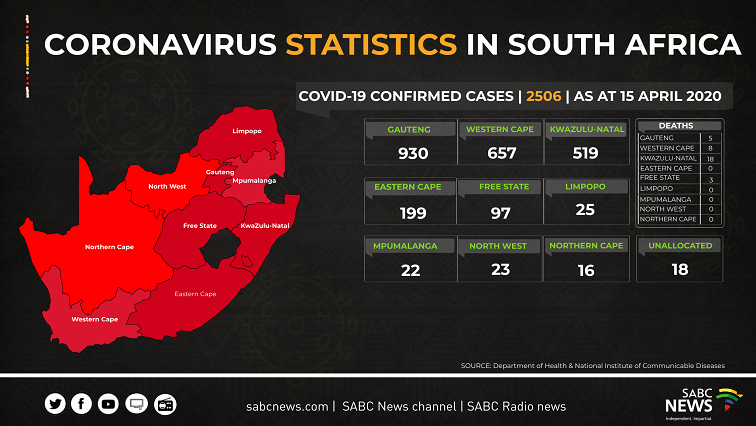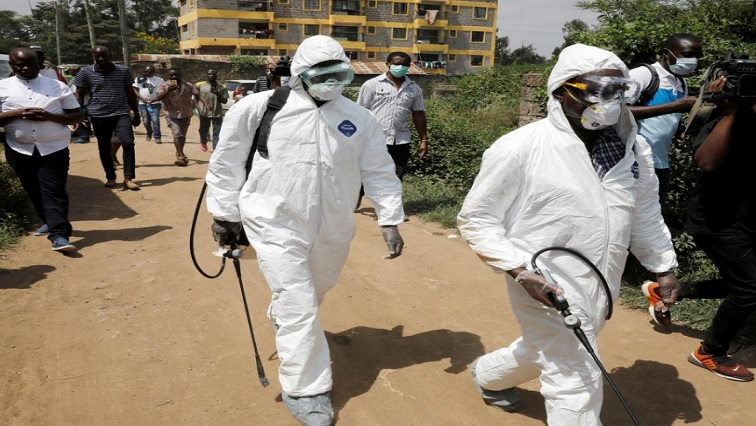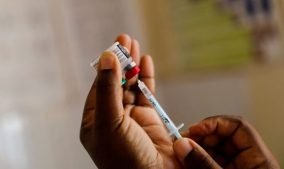Field workers at the forefront of screening for COVID-19, say resistance from community members to test has been their main challenge in fighting the virus.
Twenty-eight-thousand community healthcare workers have been deployed by the government to visit homes and detect cases before they reach epidemic levels as part of the mass screening and testing drive.
Breakdown of COVID-19 cases below:

Head of the Ministerial Advisory Committee on COVID-19 Prof Salim Abdool Karim told the nation this week that South Africa has a unique component to its response to the coronavirus. That is, deploying thousands of community healthcare workers to households to detect COVID-19 cases, to flatten the curve.
“Every other country has simply had to wait. They saw these cases coming to the hospital and that’s how they recognised they have an epidemic. In South Africa, we have chosen to go a different route. We have chosen to be pro-active. We have chosen to go out there and do active case finding. We not going to wait until they come to the hospital sick, we are going to go into the community and find them before they get to the hospital. We now have over 28 000 thousand community healthcare workers going house to house,” says Prof Karim.
However, resistance from Gauteng residents has prevented community healthcare workers from conducting the screening in some cases. At the Glen Marikana informal settlement, lockdown and social distancing are not terms understood by many, it’s business as usual for many residents. For field workers at the forefront of COVID-19, it’s a struggle to test for symptoms and ensure their own safety.
Healthcare worker Anna Mukane was part of a team conducting screening tests for COVID-19 at the Glen Marikana informal settlement in Kempton Park. Mukane, who has been conducting screening for COVID-19 since the start of the pandemic, says some community members are unwilling to allow them into their homes to conduct the screening.
“We are referring, we are screening, we do follow-ups, we link to care. It’s scary to be honest because people on the field are complaining that we are bringing the coronavirus to their home’s so they don’t want us. It’s scary but we are trying. We going to informal settlements because there is a challenge in houses, they don’t want to open for us. I’m so scared because I have a small child. When I arrive there, I don’t know if I have the virus or what, it will affect my family,” says Mukane.
Dressed in full protective gear, nurse and manager at the Department of Health’s Ekurhuleni office Lindiwe Nhleko says, her own family is sometimes nervous around her, fearing she may be carrying the virus.

Loading…
“As a field worker, it’s motivating me to know that I can face all the difficulties. I’m a professional nurse, we have a pledge that we made that the health of our communities will be our first consideration. We go there emotionally prepared but we do experience fears especially for our families. When you go home, they are afraid of you, thinking that you are bringing the virus home. You have to make sure that you counsel them,” says Nhleko.
Acting regional manager for the North Ekurhuleni Department of Health Khotso Bokolane says, without the help of field workers conducting crucial screening, the department would not cope with the increased numbers.
“The role of the field workers is very important, they are playing an important role of screening. We will not manage the big numbers of communities if we did not have field workers in doing screening. Somebody must do the job and that somebody is a field worker. When you arrive home, I will have to undress, put the clothes outside and see how I get to the shower. We have got training from NICD,” says Bokolane.
On the 18th of April, the Ministerial Advisory Committee on COVID-19 will receive information about community transmission levels from the field workers. This information will be crucial in the decision to lift or delay the lockdown.

Loading…






